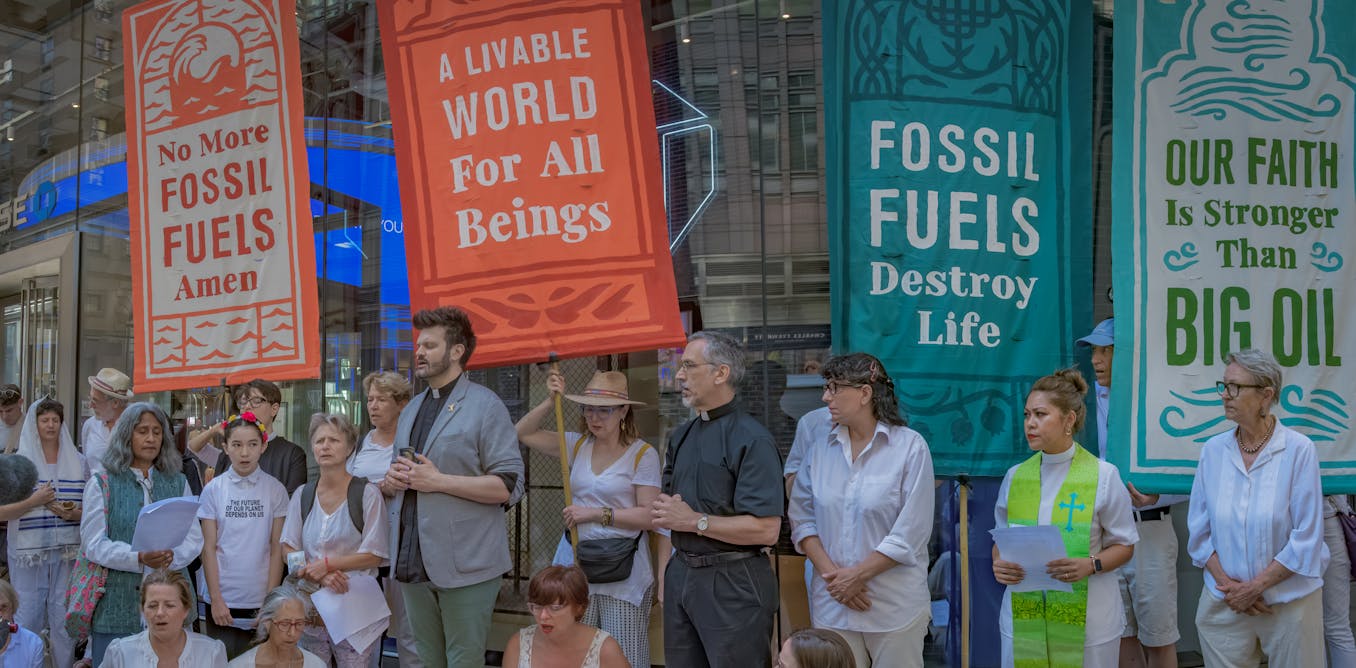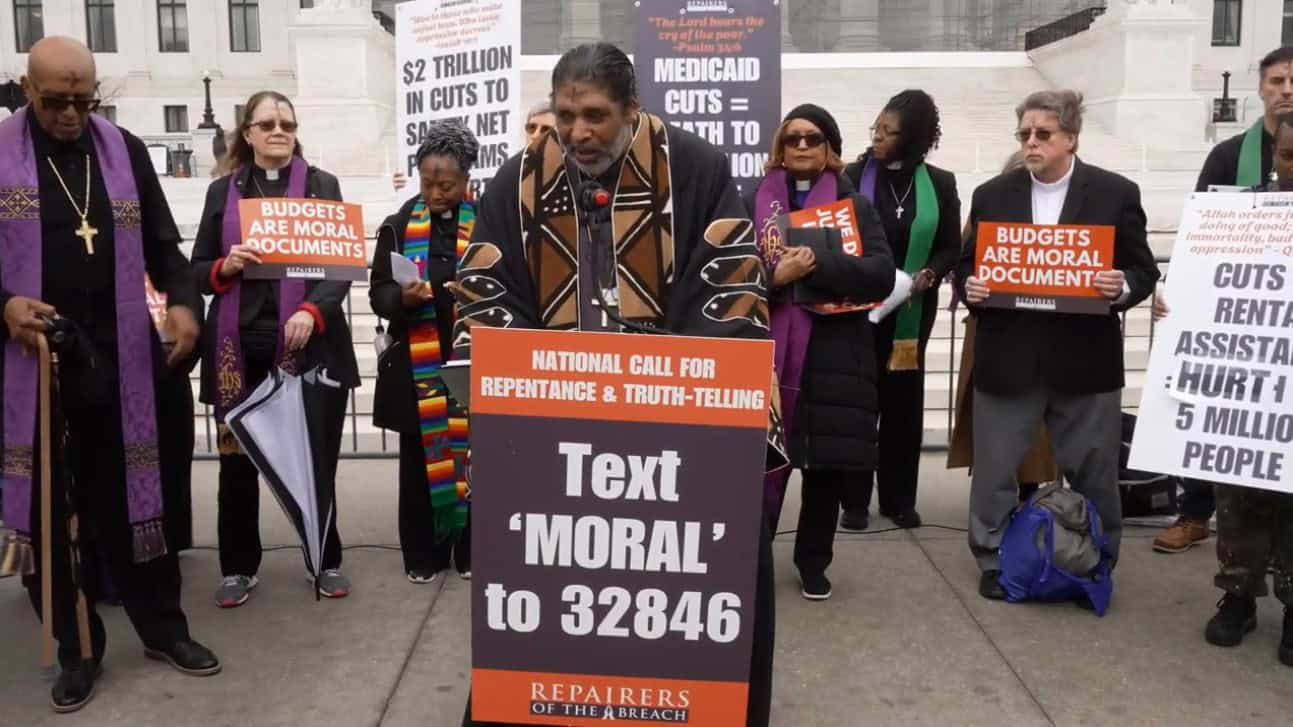Silent Pulpits: Why Christian Leaders Know About Climate Change But Aren't Talking
Religion
2025-04-02 12:47:05Content

A revealing study suggests that when churchgoers perceive their religious leaders as skeptical about human-driven climate change, they become significantly less motivated to discuss environmental issues within their congregation or take meaningful steps to address global warming.
The research highlights a critical connection between leadership perspective and congregational action. When spiritual leaders appear uncertain or dismissive about humanity's role in climate change, their followers tend to mirror that hesitation, effectively dampening potential grassroots environmental initiatives within religious communities.
This dynamic underscores the powerful influence religious leaders have in shaping their congregation's attitudes and behaviors toward critical environmental challenges. By expressing clear, informed perspectives on climate change, religious leaders can potentially inspire their communities to become more proactive in environmental stewardship and sustainability efforts.
The study serves as a compelling reminder that communication and leadership stance can significantly impact collective environmental consciousness and action, particularly within faith-based communities where trust and guidance from spiritual leaders play a central role in congregants' worldviews.
Faith, Climate, and Silence: How Religious Beliefs Shape Environmental Discourse
In an era of unprecedented environmental challenges, the intersection of religious beliefs and climate change awareness has emerged as a critical battleground for understanding societal attitudes towards global warming. The complex dynamics between religious leadership, congregational perspectives, and environmental action reveal profound insights into how communities perceive and respond to one of the most pressing issues of our time.Unraveling the Silence: When Religious Convictions Impede Climate Dialogue
The Psychological Landscape of Religious Climate Perception
Religious communities represent intricate social ecosystems where leadership perspectives profoundly influence congregational attitudes. When religious leaders express skepticism or ambivalence towards anthropogenic climate change, a cascading effect emerges that fundamentally transforms how individual members engage with environmental discourse. This psychological mechanism creates invisible barriers that suppress meaningful conversations about environmental stewardship and collective responsibility. The cognitive dissonance generated by leadership's climate stance creates a complex psychological environment where congregants become hesitant to challenge established narratives. This reluctance manifests as a collective silence, effectively neutralizing potential grassroots environmental initiatives within religious communities.Communication Dynamics and Environmental Engagement
The transmission of environmental knowledge within religious networks operates through nuanced communication channels. When perceived leadership skepticism permeates congregational discussions, it dramatically reduces the likelihood of meaningful climate dialogue. Individuals internalize these subtle cues, resulting in diminished motivation to discuss or address climate-related challenges. Research suggests that this communication suppression extends beyond mere conversation, significantly impacting practical environmental actions. Congregants who perceive their religious leaders as dismissive of human-driven climate change are substantially less likely to implement personal or community-based mitigation strategies.Theological Interpretations and Environmental Responsibility
Religious frameworks play a pivotal role in shaping environmental perspectives. Different theological interpretations can either facilitate or hinder ecological consciousness. Some religious traditions emphasize environmental stewardship as a sacred duty, while others might view human environmental impact through more passive or fatalistic lenses. The intricate relationship between religious doctrine and environmental awareness creates a complex landscape where spiritual beliefs intersect with scientific understanding. This intersection determines how communities conceptualize their role in addressing global environmental challenges.Bridging Belief Systems and Scientific Understanding
Effective environmental communication within religious communities requires nuanced approaches that respect existing belief systems while introducing scientific perspectives. Successful strategies involve creating dialogue spaces that validate religious worldviews while gradually introducing evidence-based climate information. Interfaith collaborations and educational initiatives can serve as powerful mechanisms for transforming environmental discourse. By developing culturally sensitive communication strategies, religious leaders can become pivotal agents of change in promoting climate awareness and action.Societal Implications and Future Perspectives
The broader societal implications of religious climate communication extend far beyond individual congregations. These microcosms of social interaction represent critical nodes in the larger network of environmental consciousness. Understanding and addressing the communication barriers within religious communities becomes essential for developing comprehensive climate engagement strategies. As global environmental challenges intensify, the role of religious institutions in shaping collective environmental responses becomes increasingly significant. Transforming these communication dynamics represents a crucial step towards building more resilient and proactive environmental communities.RELATED NEWS
Religion

Faith in Focus: Global Religious Trends Reshape Spiritual Landscapes on March 7
2025-03-07 00:41:01







